If you've ever operated a portable generator, you may have noticed that they have a very distinct smell. Gasoline is used to generate power, so it's no surprise that these machines give off an odor. But why does your generator smell like gas? Fortunately, we did some research to double-check this issue.
The smell of gasoline is often associated with generators because the fuel is used to power them. However, there are other reasons why a generator might smell like gas. If you're experiencing this issue, here are some things you can investigate to troubleshoot it:
- Leaking Fuel Tank
- Loose Fuel Cap
- Carburetor Problems
- Faulty Muffler
- Cracked Exhaust Pipe
- Generator Overheating
In this blog post, we'll answer those questions and more. By understanding the causes of generator odor, you can take steps to reduce or avoid it altogether. Let's get started!
What Are Some Common Causes of a Generator Smelling like Gas?
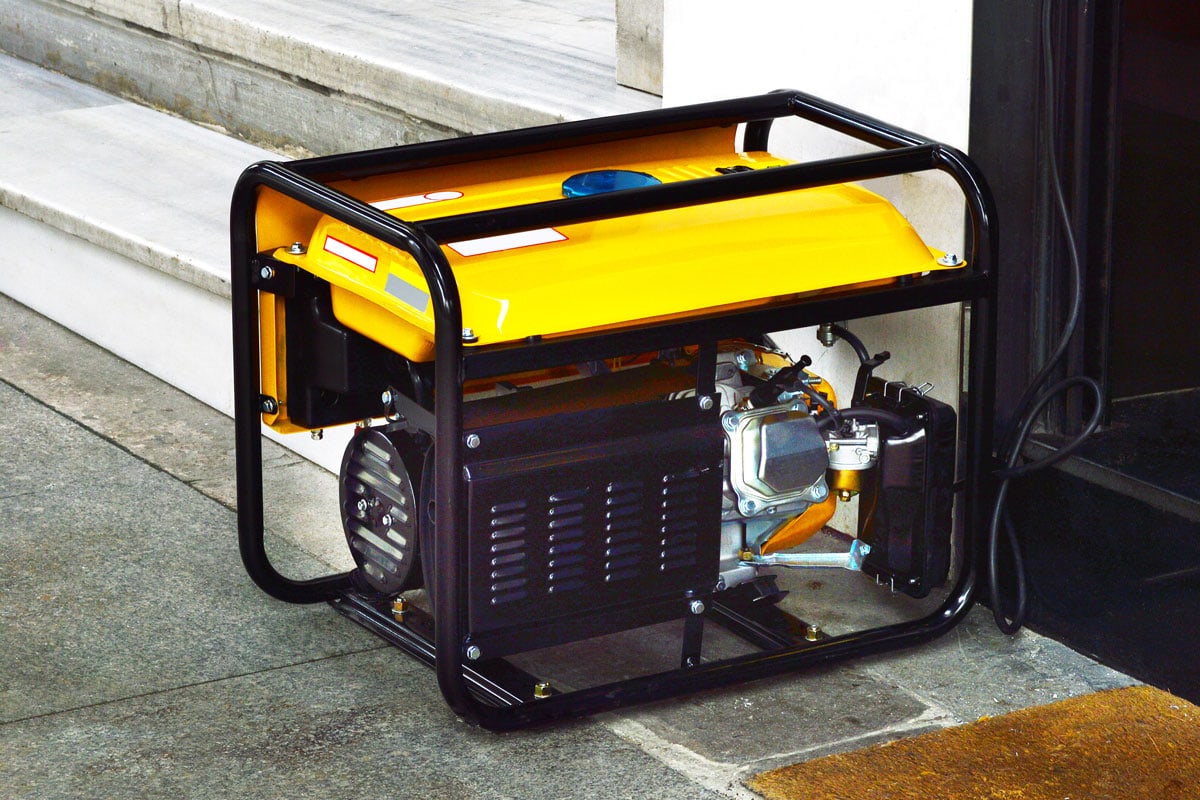
A generator that smells like gas is a cause for concern. Natural gas is odorless, so utility companies add a foul-smelling chemical to it to make leaks easier to detect.
Commonly, generator release carbon monoxide, but you cannot see or smell it. But then, if you smell gas while using your generator, it could be due to one of the following six issues:
1. Leaking Fuel Tank
If there is a hole or crack in the fuel tank, gasoline will leak out, and the fumes can be detected. Inspect the tank for any signs of damage and have it repaired or replaced as necessary.
2. Loose Fuel Cap
A loose or damaged fuel cap can also allow gasoline fumes to escape. Make sure the fuel cap is snugly in place, and check for any cracks or missing pieces.
3. Carburetor Problems
The carburetor mixes air and fuel before sending it to the engine. If the carburetor is not functioning properly, too much fuel could be delivered to the engine, leading to a strong gasoline smell. have a qualified technician clean or adjust the carburetor as needed.
4. Faulty Muffler
The muffler helps to reduce noise and exhaust fumes. If it becomes damaged or worn out, however, it can allow noxious gases to escape. Inspect the muffler for any signs of damage and replace it if necessary.
5. Cracked Exhaust Pipe
The exhaust pipe carries harmful fumes away from the engine and out of the generator enclosure. If there is a crack in the pipe, gases can escape and cause an unpleasant smell. Check the exhaust pipe for any damage and have it repaired or replaced as necessary.
6. Generator Overheating
When a generator overheats, its components can break down and release harmful chemicals into the air. If your generator smells like burning plastic or metal, it may be due to overheating.
Shut off the generator immediately and allow it to cool down before restarting it. If the problem persists, have a qualified technician inspect your generator for any potential issues.
What Should I Do If My Generator Smells Like Gas?
When generators run on gasoline, they can produce fumes that can be dangerous if inhaled. If you notice your generator smells like gas while running, there are a few steps you should take to remedy the situation.
- First, open the windows and doors to ventilate the area.
- Then, turn off the generator and let it cool down.
- Once it has cooled, check the fuel line to make sure there are no leaks. If there are leaks, repair them before restarting the generator.
- Finally, run the generator for a few minutes in a well-ventilated area to make sure the fumes have dissipated before using it again.
By following these steps, you can ensure your safety and avoid any potential accidents.
How to Prevent a Generator from Smelling like Gas?
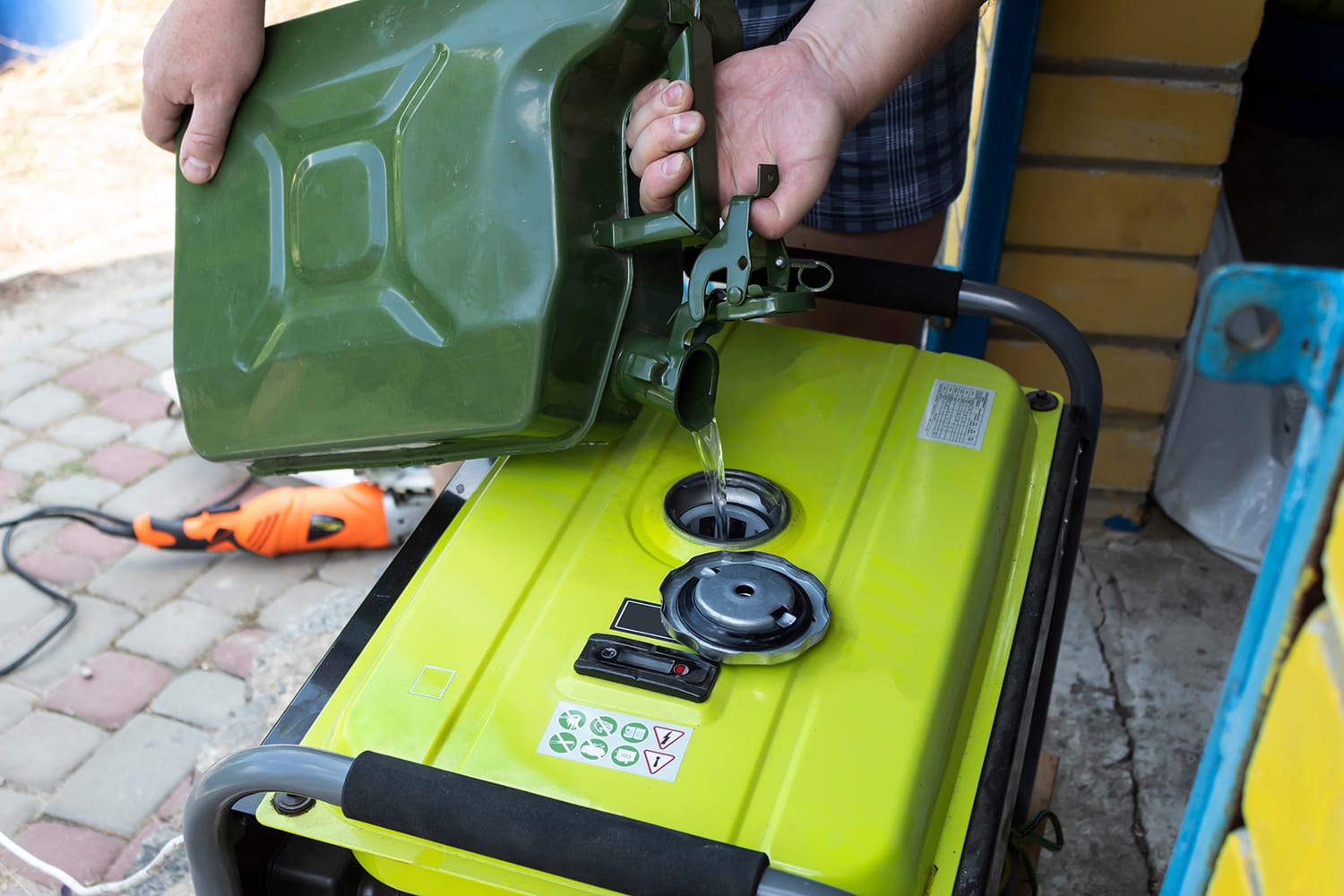
Generators usually smell like gas because they burn gasoline to create power. The tips below will help you prevent your generator from smelling like gas:
Fill with Fresh, Clean Gasoline
Old gasoline can cause deposits to build up on the engine, which can lead to a strong smell of gas.
Check Fuel Lines and Carburetor for Leaks
If there are any leaks, gas will escape and cause a strong smell.
Change the Oil Regularly
Dirty oil can also cause a build-up of deposits on the engine, leading to a gas smell.
Keep the Generator Clean
A build-up of dirt and dust can also lead to a strong gas smell.
Run the Generator for at Least 30 Minutes Each Month
A 30-minute rerun will help keep the engine in good condition and prevent a build-up of deposits.
Store the generator in a well-ventilated area. If the generator is stored in a confined space, the gas fumes can become concentrated and cause a strong smell. Place the generator 20 feet from your house.
Use a fuel stabilizer if you plan on storing the generator for an extended period of time. This will help keep the gasoline fresh and prevent it from going bad.
When You Should Call a Professional to Take a Look at Your Generator?
Many people believe that they can save money by performing their own maintenance on their generators. But then, there are certain tasks that should only be completed by a qualified professional. For example, if your generator is not starting up properly, it could be a sign of a more serious problem.
In this case, it is best to call a professional who can diagnose the issue and make the necessary repairs.
Additionally, if you notice any strange noises coming from your generator, it is also advisable to seek professional assistance. These noises could indicate that there are loose parts or other problems that need to be addressed.
By calling a qualified technician, you can be sure that your generator is in good working order and that any repairs will be made properly.
Should You Buy New Generator if It Started to Smell Like Gas?
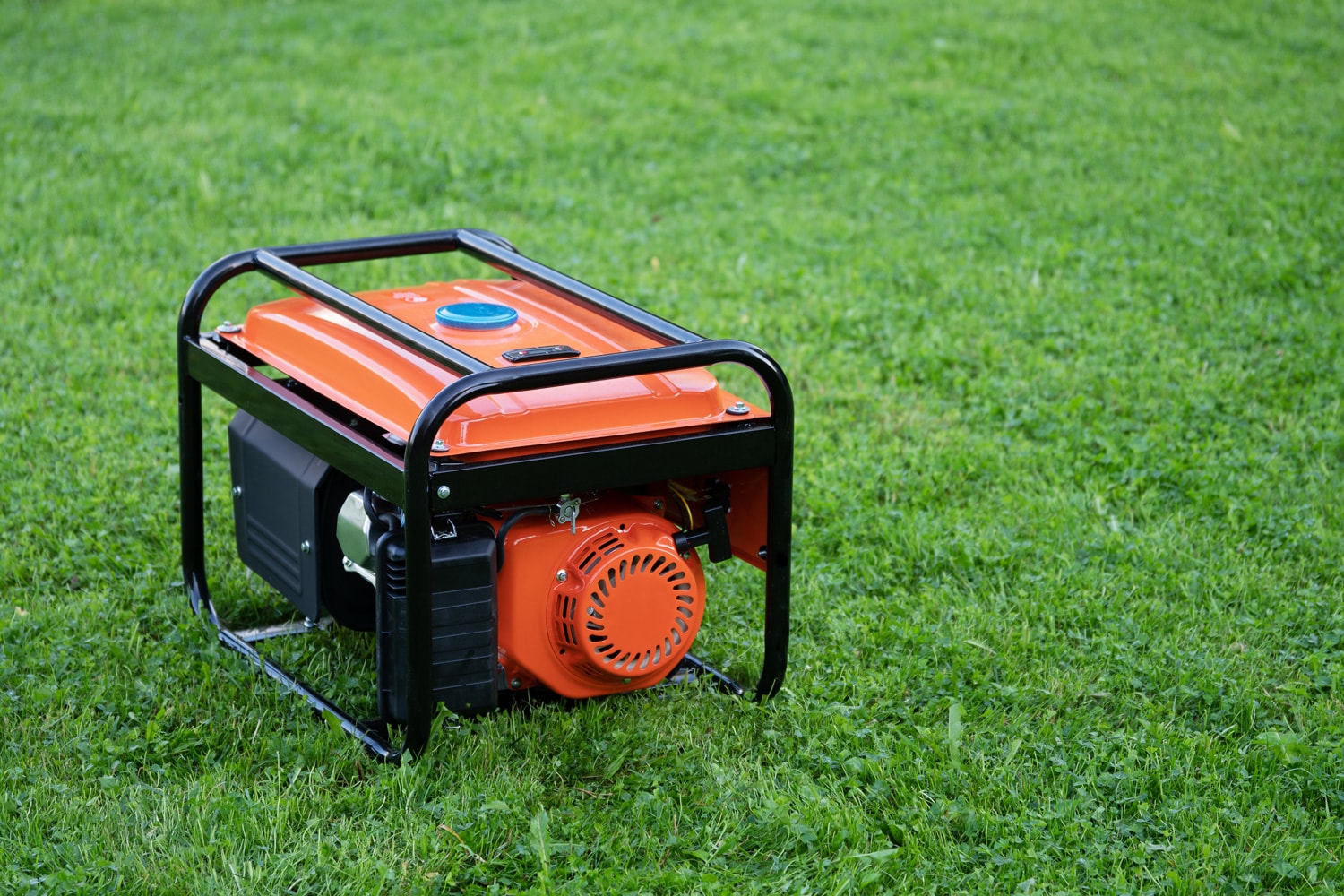
If the generator is still smelling like gas after taking the steps discussed above, it is probably time to buy a new one.
While it may be tempting to try to repair the old one, this is usually not worth the time and effort. A new generator will be more reliable and will likely last longer than a repaired one.
What are the Benefits of Proper Use of Generators at Home?
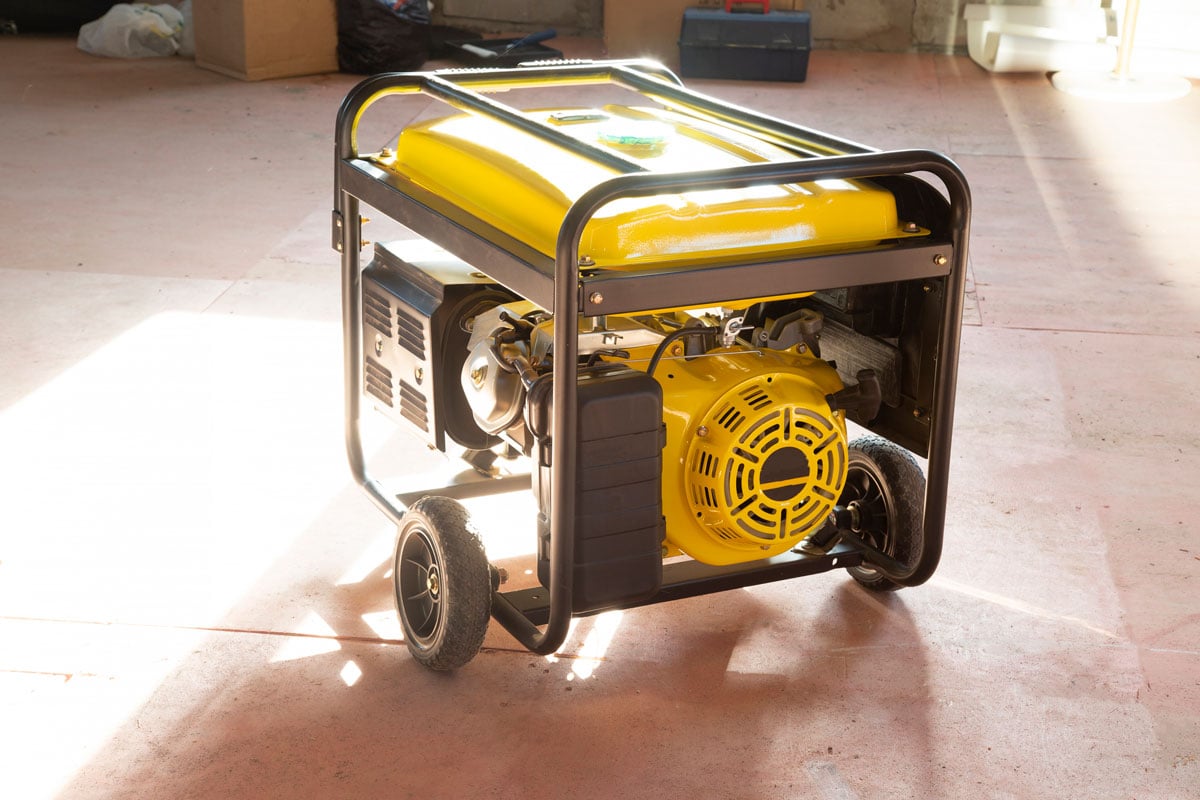
At first thought, many people might believe that generators are only useful in commercial settings or during power outages. However, generators can actually be quite beneficial for homeowners as well.
For example, if you live in an area with a lot of trees, using a generator can help to prevent power outages during severe weather.
Additionally, generators can be used to power essential appliances during a power outage, such as refrigerators and sump pumps. They can also be used to run air conditioners and other energy-intensive appliances when grid power is unavailable or too expensive.
Ultimately, generators provide homeowners with a reliable source of backup power that can be used in a variety of situations.
What Are the Advantages of Checking Your Generator before Every Use?
A generator is a lifesaver during a power outage. But, if you don't take the time to check it before every use, you could be in for a nasty surprise. Here are seven advantages of checking your generator before every use:
- You'll know if it's properly fueled.
- You'll know if the oil level is adequate.
- You'll know if the air filter is clean.
- You'll know if the spark plugs need to be replaced.
- You'll know if there are any loose connections.
- You'll know if the engine is running smoothly.
- You'll have peace of mind knowing that your generator is ready to go when you need it.
So, take a few minutes to check your generator before every use. It could save you a lot of hassle (and possibly even your life) in the long run.
Other Tips to Properly Maintain Your Generator
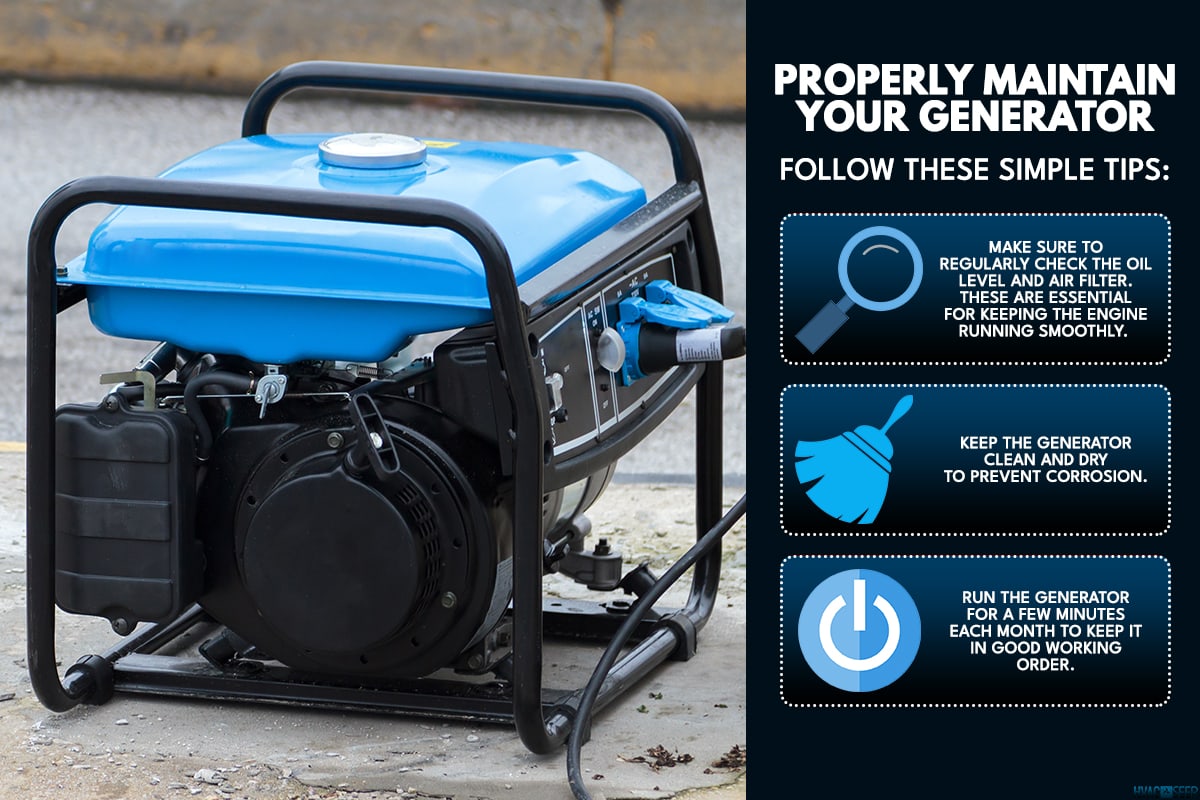
A generator can be a helpful addition to your home, supplying power in the event of an outage. However, it's important to properly maintain your generator to ensure that it runs safely and efficiently.
Here are a few tips:
- Make sure to regularly check the oil level and air filter. These are essential for keeping the engine running smoothly.
- Keep the generator clean and dry to prevent corrosion.
- Run the generator for a few minutes each month to keep it in good working order.
By following these simple tips, you can help ensure that your generator will be there when you need it.
Final Words
Although gasoline smells unpleasant, it's important to remember that it's a flammable substance and should be handled with care. If you're having trouble with your generator and think it might be due to the smell of gas, take these steps to troubleshoot the problem.
For more tips about your HVAC system, keep following our posts below:

